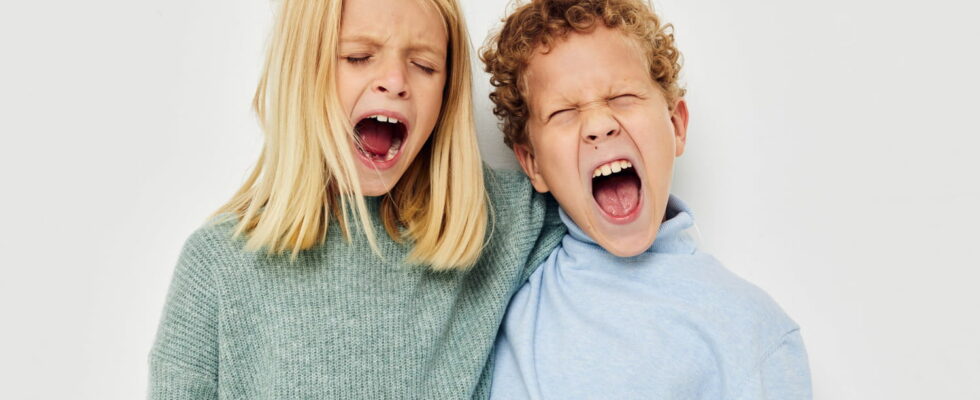“The way we manage conflicts between our children has a considerable impact on their frequency and intensity,” explains psychologist Héloïse Junier. No need to punish or be harsh, here’s how to react when little ones bicker.
Regardless of the age gap, children argue regularly, sometimes hitting each other. Is the eldest jealous? The youngest doesn’t want to lend his toys? A way for them to assert themselves and impose their choice, but it is often difficult for parents to manage arguments on a daily basis. According to several researchers, “conflicts between children are, most often, poorly resolved by parents and professionals“, reports the psychologist Héloïse Junier in her book “Brothers and sisters: a fascinating relationship between complicity and rivalry” to the editions Les Arenes Eds.
Indeed, managing conflicts in a strict and punitive manner would have the opposite effect of the expected result. Parents who pull the child who “started” by the arm to back away, send him to his room to punish him, spank him or shout at him would only increase the number of arguments: “These reactions risk increasing the frequency and intensity of these aggressive behaviors towards their brothers and sisters,” explains the psychologist. A study carried out in 2014 in Canada also shows that positioning oneself as a “vigilante” was not the best strategy.
So, what should we do when our children argue? Héloïse Junier recommends that parents act as mediators. Concretely, in the event of a conflict, it is appropriate to react calmly at the moment, to observe the situation without entering into judgment, to begin a negotiation process with your children, to suggest a solution yourself. they don’t find one of their own. For example :”Can we say that Tina keeps the toy for 5 minutes and then it’s Leo’s turn, or is it Leo who plays first and then Tina? Do you two prefer to play together? Or another idea: we find another toy that would make you very happy, which will allow the other to wait, what do you think?“. In any case, let your children choose the idea they prefer, remind them of the prohibitions and encourage your children when they manage to overcome their anger.
According to the study, parents who adopt this mediation strategy obtain a better result than those who act as vigilantes. “Conflicts between children tend to be fewer and less violent,” assures the psychologist who recognizes that in practice, it is not always easy for parents or professionals to react constructively to all conflicts. But it’s worth a try…
